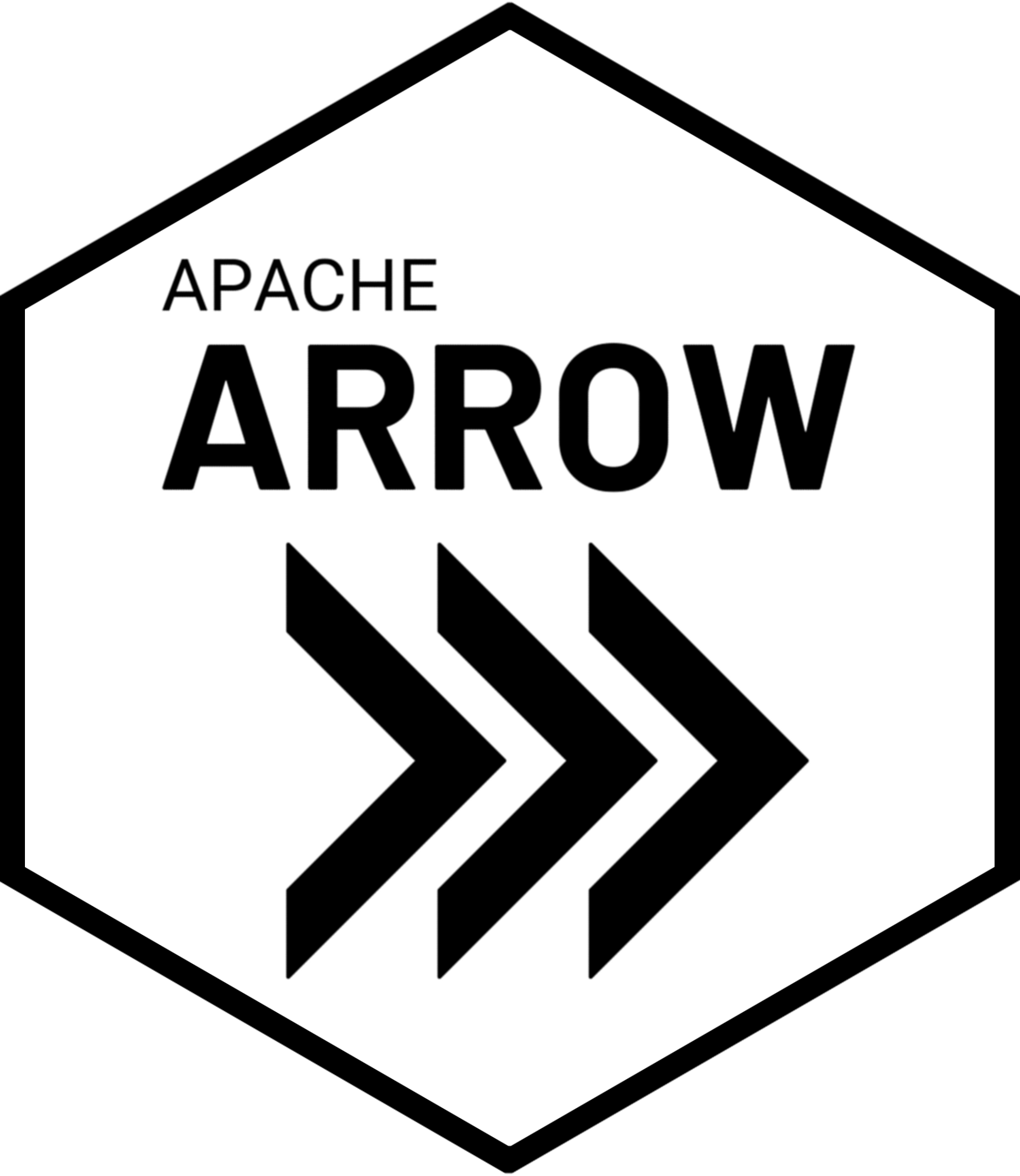https://github.com/shikokuchuo/mirai
mirai - Minimalist Async Evaluation Framework for R
https://github.com/shikokuchuo/mirai
asynchronous-tasks concurrency cran distributed-computing high-performance-computing parallel-programming promises r r-package rstats
Last synced: 8 months ago
JSON representation
mirai - Minimalist Async Evaluation Framework for R
- Host: GitHub
- URL: https://github.com/shikokuchuo/mirai
- Owner: shikokuchuo
- License: gpl-3.0
- Created: 2022-02-14T22:11:55.000Z (almost 4 years ago)
- Default Branch: main
- Last Pushed: 2024-05-22T22:46:22.000Z (over 1 year ago)
- Last Synced: 2024-05-23T02:27:51.711Z (over 1 year ago)
- Topics: asynchronous-tasks, concurrency, cran, distributed-computing, high-performance-computing, parallel-programming, promises, r, r-package, rstats
- Language: R
- Homepage: https://shikokuchuo.net/mirai/
- Size: 6.33 MB
- Stars: 135
- Watchers: 6
- Forks: 5
- Open Issues: 1
-
Metadata Files:
- Readme: README.Rmd
- License: LICENSE.md
- Code of conduct: .github/CODE_OF_CONDUCT.md
Awesome Lists containing this project
- jimsghstars - shikokuchuo/mirai - mirai - Minimalist Async Evaluation Framework for R (R)
README
---
output: github_document
---
```{r, include = FALSE}
knitr::opts_chunk$set(
collapse = TRUE,
comment = "#>",
fig.path = "man/figures/README-",
out.width = "100%"
)
```
[](https://CRAN.R-project.org/package=mirai)
[](https://shikokuchuo.r-universe.dev/mirai)
[](https://github.com/shikokuchuo/mirai/actions)
[](https://app.codecov.io/gh/shikokuchuo/mirai)
[](https://zenodo.org/badge/latestdoi/459341940)
### ミライ
みらい 未来
Minimalist Async Evaluation Framework for R
Designed for simplicity, a 'mirai' evaluates an R expression asynchronously in a parallel process, locally or distributed over the network. The result is automatically available upon completion.
Modern networking and concurrency, built on [nanonext](https://github.com/shikokuchuo/nanonext/) and [NNG](https://nng.nanomsg.org/) (Nanomsg Next Gen), ensures reliable and efficient scheduling over fast inter-process communications or TCP/IP secured by TLS. Distributed computing can launch remote resources via SSH or cluster managers.
An inherently queued architecture handles many more tasks than available processes, and requires no storage on the file system. Innovative features include support for otherwise non-exportable reference objects, event-driven promises, and asynchronous parallel map.
### Quick Start
Use `mirai()` to evaluate an expression asynchronously in a separate, clean R process.
The following mimics an expensive calculation that eventually returns a vector of random values.
```{r exec}
library(mirai)
m <- mirai({Sys.sleep(n); rnorm(n, mean)}, n = 5L, mean = 7)
```
The mirai expression is evaluated in another process and hence must be self-contained, not referring to variables that do not already exist there. Above, the variables `n` and `mean` are passed as part of the `mirai()` call.
A 'mirai' object is returned immediately - creating a mirai never blocks the session.
Whilst the async operation is ongoing, attempting to access a mirai's data yields an 'unresolved' logical NA.
```{r do}
m
m$data
```
To check whether a mirai remains unresolved (yet to complete):
```{r unres}
unresolved(m)
```
To wait for and collect the return value, use the mirai's `[]` method:
```{r call}
m[]
```
As a mirai represents an async operation, it is never necessary to wait for it. Other code can continue to run. Once it completes, the return value automatically becomes available at `$data`.
```{r resolv}
while (unresolved(m)) {
# do work here that does not depend on 'm'
}
m
m$data
```
#### Daemons
Daemons are persistent background processes for receiving mirai requests, and are created as easily as:
```{r daemons}
daemons(4)
```
Daemons may also be deployed [remotely](https://shikokuchuo.net/mirai/articles/mirai.html#distributed-computing-remote-daemons) for distributed computing and [launchers](https://shikokuchuo.net/mirai/articles/mirai.html#distributed-computing-launching-daemons) can start daemons across the network via (tunnelled) SSH or a cluster resource manager.
[Secure TLS connections](https://shikokuchuo.net/mirai/articles/mirai.html#distributed-computing-tls-secure-connections) can be used for remote daemon connections, with zero configuration required.
#### Async Parallel Map
`mirai_map()` maps a function over a list or vector, with each element processed in a separate parallel process. It also performs multiple map over the rows of a dataframe or matrix.
```{r map}
df <- data.frame(
fruit = c("melon", "grapes", "coconut"),
price = c(3L, 5L, 2L)
)
m <- mirai_map(df, \(...) sprintf("%s: $%d", ...))
```
A 'mirai_map' object is returned immediately. Other code can continue to run at this point. Its value may be retrieved at any time using its `[]` method to return a list, just like `purrr::map()` or `base::lapply()`. The `[]` method also provides options for flatmap, early stopping and/or progress indicators.
```{r mapvalue}
m
m[.flat]
```
All errors are returned as 'errorValues', facilitating recovery from partial failure. There are further [advantages](https://shikokuchuo.net/mirai/articles/mirai.html#asynchronous-parallel-map) over alternative map implementations.
### Design Concepts
mirai is designed from the ground up to provide a production-grade experience.
- Fast
+ 1,000x more responsive compared to common alternatives [[1]](https://github.com/shikokuchuo/mirai/pull/142#issuecomment-2457589563)
+ Built for low-latency applications such as real time inference or Shiny apps
- Reliable
+ Consistent behaviour with no reliance on global options or variables
+ Each mirai call is evaluated explicitly for transparent and predictable results
- Scalable
+ Launch millions of tasks simultaneously over thousands of connections
+ Proven track record handling heavy-duty workloads in the life sciences industry
[ ](https://youtu.be/GhX0PcEm3CY?t=1740)
](https://youtu.be/GhX0PcEm3CY?t=1740)
[ ](https://youtu.be/cyF2dzloVLo?t=5127)
](https://youtu.be/cyF2dzloVLo?t=5127)
> *mirai パッケージを試してみたところ、かなり速くて驚きました*
### Integrations
mirai features the following core integrations, with usage examples in the linked vignettes:
[ ](https://shikokuchuo.net/mirai/articles/parallel.html) Provides an alternative communications backend for R, implementing a new parallel cluster type, a feature request by R-Core at R Project Sprint 2023. 'miraiCluster' may also be used with 'foreach' via 'doParallel'.
](https://shikokuchuo.net/mirai/articles/parallel.html) Provides an alternative communications backend for R, implementing a new parallel cluster type, a feature request by R-Core at R Project Sprint 2023. 'miraiCluster' may also be used with 'foreach' via 'doParallel'.
[ ](https://shikokuchuo.net/mirai/articles/promises.html) Implements the next generation of completely event-driven, non-polling promises. 'mirai' and 'mirai_map' objects may be used interchageably with 'promises', including with the promise pipe `%...>%`.
](https://shikokuchuo.net/mirai/articles/promises.html) Implements the next generation of completely event-driven, non-polling promises. 'mirai' and 'mirai_map' objects may be used interchageably with 'promises', including with the promise pipe `%...>%`.
[ ](https://shikokuchuo.net/mirai/articles/shiny.html) Asynchronous parallel / distributed backend, supporting the next level of responsiveness and scalability within Shiny, with native support for ExtendedTask.
](https://shikokuchuo.net/mirai/articles/shiny.html) Asynchronous parallel / distributed backend, supporting the next level of responsiveness and scalability within Shiny, with native support for ExtendedTask.
[ ](https://shikokuchuo.net/mirai/articles/plumber.html) Asynchronous parallel / distributed backend for scaling Plumber applications in production.
](https://shikokuchuo.net/mirai/articles/plumber.html) Asynchronous parallel / distributed backend for scaling Plumber applications in production.
[ ](https://shikokuchuo.net/mirai/articles/databases.html) Allows queries using the Apache Arrow format to be handled seamlessly over ADBC database connections hosted in background processes.
](https://shikokuchuo.net/mirai/articles/databases.html) Allows queries using the Apache Arrow format to be handled seamlessly over ADBC database connections hosted in background processes.
[ ](https://shikokuchuo.net/mirai/articles/torch.html) Allows Torch tensors and complex objects such as models and optimizers to be used seamlessly across parallel processes.
](https://shikokuchuo.net/mirai/articles/torch.html) Allows Torch tensors and complex objects such as models and optimizers to be used seamlessly across parallel processes.
### Powering Crew and Targets High Performance Computing
[ ](https://docs.ropensci.org/targets/) Targets, a Make-like pipeline tool for statistics and data science, has integrated and adopted the crew package as its default high-performance computing backend.
](https://docs.ropensci.org/targets/) Targets, a Make-like pipeline tool for statistics and data science, has integrated and adopted the crew package as its default high-performance computing backend.
[ ](https://wlandau.github.io/crew/) Crew is a distributed worker-launcher extending mirai to different distributed computing platforms, from traditional clusters to cloud services.
](https://wlandau.github.io/crew/) Crew is a distributed worker-launcher extending mirai to different distributed computing platforms, from traditional clusters to cloud services.
[ ](https://wlandau.github.io/crew.cluster/) 'crew.cluster' enables mirai-based workflows on traditional high-performance computing clusters using LFS, PBS/TORQUE, SGE and Slurm.
](https://wlandau.github.io/crew.cluster/) 'crew.cluster' enables mirai-based workflows on traditional high-performance computing clusters using LFS, PBS/TORQUE, SGE and Slurm.
[ ](https://wlandau.github.io/crew.aws.batch/) 'crew.aws.batch' extends mirai to cloud computing using AWS Batch.
](https://wlandau.github.io/crew.aws.batch/) 'crew.aws.batch' extends mirai to cloud computing using AWS Batch.
### Thanks
We would like to thank in particular:
[Will Landau](https://github.com/wlandau/) for being instrumental in shaping development of the package, from initiating the original request for persistent daemons, through to orchestrating robustness testing for the high performance computing requirements of crew and targets.
[Joe Cheng](https://github.com/jcheng5/) for integrating the 'promises' method to work seamlessly within Shiny, and prototyping event-driven promises.
[Luke Tierney](https://github.com/ltierney/) of R Core, for discussion on L'Ecuyer-CMRG streams to ensure statistical independence in parallel processing, and making it possible for mirai to be the first 'alternative communications backend for R'.
[Henrik Bengtsson](https://github.com/HenrikBengtsson/) for valuable insights leading to the interface accepting broader usage patterns.
[Daniel Falbel](https://github.com/dfalbel/) for discussion around an efficient solution to serialization and transmission of torch tensors.
[Kirill Müller](https://github.com/krlmlr/) for discussion on using parallel processes to host Arrow database connections.
[ ](https://r-consortium.org/) for funding work on the TLS implementation in nanonext, used to provide secure connections in mirai.
](https://r-consortium.org/) for funding work on the TLS implementation in nanonext, used to provide secure connections in mirai.
### Installation
Install the latest release from CRAN:
```{r cran, eval=FALSE}
install.packages("mirai")
```
The current development version is available from R-universe:
```{r universe, eval=FALSE}
install.packages("mirai", repos = "https://shikokuchuo.r-universe.dev")
```
### Links & References
◈ mirai R package:
◈ nanonext R package:
mirai is listed in CRAN High Performance Computing Task View:
--
Please note that this project is released with a [Contributor Code of Conduct](https://shikokuchuo.net/mirai/CODE_OF_CONDUCT.html). By participating in this project you agree to abide by its terms.
